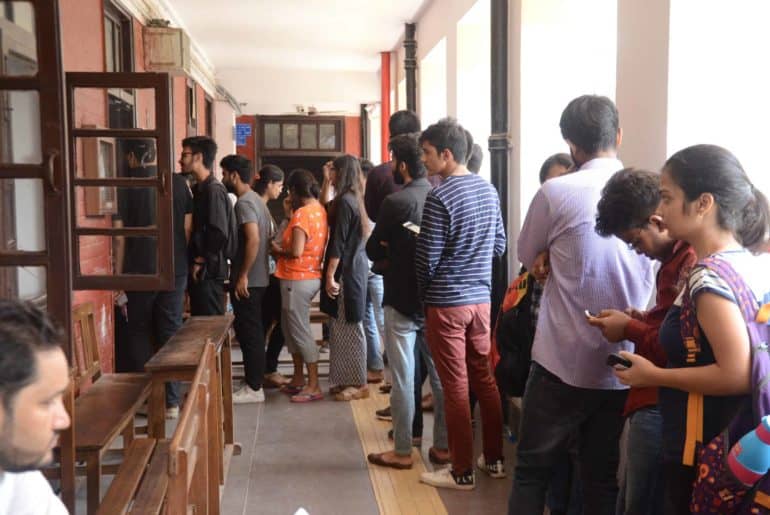The University of Delhi (DU) works as a microcosm of the world. And like the bigger picture, it has its own sense of politics. Here is a brief intro to Delhi University Student’s Union (DUSU) and its significance.
Many big names in contemporary Indian politics have had a stint in their college elections. Be it Arun Jaitley, president of the DUSU in 1974, or Kanhaiya Kumar, the Students Union President of Jawaharlal Nehru University; these elections seem like a foundation for a career in politics.
The DUSU is a student body which held its first elections in 1954. It is the body which regulates and renegotiates the policies, rules and regulations agreed on by the varsity. DUSU actively involves itself in student-related issues and problems, tries to resolve them by pursuing the administration and works for the welfare of the students. DUSU has actively involved itself in the admission-related processes and issues of students.
However, this entity is not free from dirty politics and hooliganism. The student politicians are infamous for staging protests, illegal activities, and unnecessary violence. The rivalry between ABVP (Akhil Bharatiya Vidyarthi Parishad)— student-wing of the Bhartiya Janta Party (BJP) and Rashtriya Swayamsevak Sangh (RSS)—and National Students’ Union of India (NSUI)—student-wing of the Indian National Congress (INC)—is representative of their much larger right-versus-left conflict.
Supplementing this circle of politics are organisations like Pinjra Tod, Student’s Federation of India (SFI), All India Student’s Association (AISA), Democratic Student’s Union (DSU), Krantikari Yuva Sanghatan (KYS) and many others.
The most important takeaway from the DUSU and its functioning for the university students is that it allows students to have an opportunity to contemplate their political choices, their freedom to vote, and the ‘apparent’ legacy of their family opinions. The first vote a DU student casts is for this simulation of National democracy.
Jaishree Kumar, a final year student of History from Ramjas College has experienced this circus for the past two years. She states, “Politics in the university can be intimidating, but it’s also a reflection of National politics, and in some ways, a caricature of it. Its apparent omnipresence is suffocating sometimes, but don’t get deterred by their loudness. Their freebies and niceness don’t matter. Their ‘may I help you’ signs disappear once the elections are over. Don’t run away from the politics, don’t take pride in calling yourself ‘apolitical’, don’t follow an ideology which has been passed down your family. You’re a university student, question everything.”
Some first-time witnesses of DUSU politics, like Prateek Pankaj from Hindu College call it “a social laboratory to understand how politics at the larger scale works”. He says, “More than anything, it teaches how democracy lives and breathes around us. When you see people protesting against the dismissal of sanitation workers or for the rights of ad-hoc teachers, it tells you how issues actually impact people.”
A humble advice to all the freshers: be aware, be involved and be alert. Form your own political opinions. I myself have experienced this ‘House of Shards’ for the first time last year, and I am already looking forward to this year’s dynamics.
Feature Image Caption: Students queued to cast their votes during DUSU Elections 2018-19.
Feature Image Credits: Aakarsh Gupta for DU Beat
Sakshi Arora














